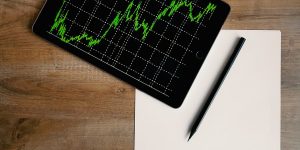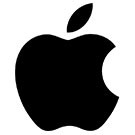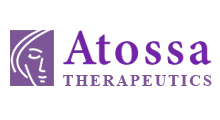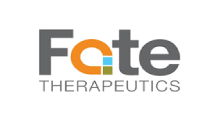Information Sector Pushes Nasdaq Forward But Balance of Market Indices Checked
- Published Aug 01, 2020
- Current Coverage
- Market News

Overall the markets were left a bit in check this week except for the mighty Nasdaq index which moved 3.7% higher again. The Nasdaq is now up nearly 20% in 2020, surging forward on the broad shoulders of the information tech sector which rose 5%. The Nasdaq’s move also came as the earnings season continued to roll forward with a number of highly weighted heavy hitters reporting. The schedule included Apple (AAPL), Amazon (AMZN) & Facebook (FB) which all reported after the close Thursday beating Wall Street expectations while investors saw their respective valuations swell significantly on Friday.
However, the growing number of coronavirus cases in the world and specifically in the US along with the associated delays or rollbacks of reopenings in the US continued to plague investors’ minds. Coronavirus cases now number 17.3M up from 15.6M last week worldwide. The US now has confirmed 4.594M cases up from 4.17M cases last Friday.
A report also confirmed that US Q2 GDP had precipitously dropped at an annualized rate of 32.9%, the deepest quarterly downturn on record. Congressional negotiations over an amazing 5th coronavirus relief or stimulus bill were slowed this week as politicians wrangled.
Countering this negativity and/or in response to the ongoing COVID-19 shutdown related economic issues & uncertainty, the Fed gave the market what it “wanted.” Fed Chair Jerome Powell kept interest rates at historic lows and gave no real insight on when they might be raised stating, “Fundamentally, this is a disinflationary shock…There’s a lot of discussion over how this might lead to inflation over time. We see core inflation dropping to 1%. I do think for some time we’re going to be struggling against disinflationary pressures rather than inflationary pressures.” He also added, “I think in the broad scheme of things, that there will be a need both for more support from us and more fiscal policy. You see the ongoing discussions that they’re having. It suggests to me that both sides, they’re wrangling over various provisions but nonetheless believe that there is the need for some additional fiscal support.”
The escalating nature of the US-China trade war that rose its ugly head last week also seemed to drift away from the press and investors’ minds this week and took a bullish back seat.
The macroeconomic schedule also brought forth the following reports this week: On Monday we received the total durable goods orders report which confirmed that business spending increased in June by 7.3% month/month & when you excluded transportation, orders rose nicely by 3.3%. On Tuesday, we received the Conference Board’s Consumer Confidence Index report which confirmed a drop to 92.6 in July as COVID-19 case growth was confirmed in concert with the slowed reopenings, and on the other side of the coin, the S&P Case-Shiller Home Price Index report for May confirmed a nice rise by 3.7%. On Wednesday, we received the US pending home sales report which confirmed a sizable 16.6% jump in June on the backside of the massive 44.3% rebound in May. There was also confirmation from the advance international trade in goods report which showed a lower deficit that totaled $70.6B in June ($75.3B in May.) The advance retail inventories report however showed a 2.6% drop in June while the advance wholesale inventories report dropped 2% in June. Finally, the weekly MBA Mortgage Applications Index report confirmed a .8% drop. On Thursday, the Q2 GDP report confirmed a drop by an annualized rate of 32.9%. The GDP Price Deflator also fell by 1.8%. Both were somewhat expected as it represented the results coronavirus shutdown. The Initial claims report for the week ending July 25 also confirmed a rise by 12k to 1.434M while the continuing claims report for the week ending July 18 jumped by a sizable 867k to 17.018M showing further evidence of slow recovery. On Friday, the personal income report confirmed a drop by 1.1% month/month in June while the personal spending report showed a rise of 5.6% month/month. The PCE Price Index report confirmed a move up by .4% month/month as the core-PCE Price Index moved up .2% month/month. The Q2 Employment Cost Index report rose .5%, seasonally adjusted, for the three-month period ending in June 2020. The final July reading for the University of Michigan Index of Consumer Sentiment dropped to 72.5. The Chicago PMI for July rose to 51.9 up significantly from June’s 36.6.

MARKET RESULTS & MARKET LEADERS
The Dow ended the week at 26,428.32 representing a weekly loss of .2% and is now down 7.4% YTD. A few more Dow 30 components reported earnings this week. Pharmaceutical giant Merck (MRK) closed at $80.24/share up 1.6% & Exxon Mobil (XOM) closed at $42.08/share up .5% after beating expectations. However, energy giant Chevron (CVX) closed at $83.94/share down 2.7% & Caterpillar (CAT) closed at $132.88/share down 2.8% after missing Wall Street’s expectations.
The Russell 2000 closed at 1,480.43 representing a weekly gain of .9% and is now down 11.2% YTD. The S&P 500 closed at 3,271.12 losing 1.7% and is now down on up 1.2% YTD. The Nasdaq Composite closed at 10,745.27 had the best week moving ahead by 3.7% and now is up 19.8% YTD.
The information technology sector rose a sizable 5%, the real estate sector jumped 4.1%, & the consumer discretionary sector added 2.1% to lead all sectors.
The financials sector sold off .9% this week. Around the sector, shares of Goldman Sachs (GS) closed trading at $197.96/share down from the $201.47/share, American Express (AXP) closed at $93.32/share down from the $95.33/share last Friday, Visa (V) closed trading at $195.15/share up from the $195.09/share last Friday & shares of Morgan Stanley (MS) closed at $48.88/share down from last Friday’s close of $50.18/share.
The S&P 500 healthcare sector closed at 1,228.58 up a little from the close at 1,224.52 last Friday. The Ishares Nasdaq Biotechnology ETF (IBB) moved a lower again this week closing at $134.37 vs. last Friday’s close of $136.41. The 52-wk range is $92.15 – $1446.53. The NYSE Arca Biotech Index (^BTK) closed at 5,657.48 down from the 5,769.80 level last week. The new 52-week high is 6066.14. Johnson & Johnson (JNJ) closed at $145.76/share down from $148.12.
The FAANG’s ended the week as follows: Facebook (FB) closed at $253.67/share, 8.17% Friday ($230.71/share a week ago), Apple (AAPL) closed at $425.04/share, +10.47% on Friday after beating expectations and an interesting 4-1 stock split to boot, ($370.46/share a week ago), Amazon (AMZN) closed at $3,164.68/share, +3.7% Friday ($3,008.91/share a week ago), Netflix (NFLX) closed at $488.88/share, +.63% Friday, ($480.45/share a week ago), & Alphabet (GOOG) closed at $1,482.96/share, -3.17% Friday, ($1,511.87/share a week ago.)
COMMODITY MOVES
Gold prices closed at $1,975/oz. surging up from $1,902/0z. last Friday & silver prices closed at $24.50/oz. up sharply again from $22.98/oz. last Friday. In concert, North American silver and gold producer Hecla Mining Company (HL) ended the week at $5.52/share up from last Friday’s close of $5.20/share while establishing a new 52-week high on Friday of $5.53. Recently, Hecla announced that they are experiencing “Strong Production and Cash Generation.”
The energy sector lagged this week dropping 4.3%. Oil prices ended at $40.13/bbl down 2.3% from last Friday’s $41.08/bbl. Energy giant Chevron (CVX) moved lower this week to close at $83.94/share ($90.13, last wk) and Exxon (XOM) moved down closing at $42.08/share ($43.43, last wk.) Occidental Petroleum Corporation (OXY) closed at $15.74 down from $16.74/share last Friday. Midstream player, Enterprise Products Partners (EPD), closed trading at $17.60 down from $18.14/share last Friday and currently sports at an attractive $1.78/share dividend or 10.10%. USA Corporation Partners, LP. (USAC), one of the nation’s largest independent providers of natural gas compression services, closed at $11.54/share down from $12.31/share last Friday and currently sports a $2.10/share (17.75%) dividend.
MONEY UPDATE
The U.S. Dollar Index weakened again to end the week at 93.46 down from 94.40 last week.
The 2-yr Treasury yield closed down 4 basis points w/w closing at .10%, the 10-yr yield closed down an equal 4 basis points ending at .54 while the 30-yr yield ended at 1.198% down from 1.232% last Friday.
NEXT WEEK
We will be back to a full week of trading sessions again next week.
We will also be seeking the following macroeconomic reports and “stocks in view” throughout the week:
MACROECONOMIC DATA
- The construction spending report
- The unemployment rate report
- The Purchasing Managers’ Index (PMI) composite
- The consumer credit report
STOCKS IN VIEW
-
Shares of Atossa Therapeutics (ATOS) closed at $3.78 on Friday down from $3.99 last Friday.
-
Interest continues to swell around both their breast cancer treatment and two COVID-19 drug programs.
-
ATOS’ stock has seen positive trading volatility this year and has moved up from $.76/share on significantly increasing trading volume and established a new 52-week high of $4.69/share.
-
On July 30th, Atossa’s CEO, Dr. Steven Quay, M.D., Ph.D., presented at Tribe Public’s Zoom Webinar Presentation and During this complimentary, 30-minute event, Dr. Quay presented followed by a Q&A session regarding Atossa’s breast cancer development programs and recent progress with its two COVID-19 treatment programs. To view the presentation and to join future complimentary events please visit the Tribe Public LLC website to register: www.tribepublic.com, or send a message to Tribe’s management at research@tribepublic.com to request your seat at future events.
-
This week, ATOS announced interim findings following 18 months of an Expanded Access (or “compassionate use”) single-patient study of Atossa’s Endoxifen. To date, the patient has not had a recurrence of breast cancer, as assessed by clinical breast examination and mammography; has not had treatment-related changes in periodic laboratory blood tests and general clinical examinations; and the treatment has been well-tolerated, including an absence of typically seen vasomotor symptoms (for example, night sweats and hot flashes). The study results show that treatment with Atossa’s proprietary Endoxifen for 20 days prior to unilateral mastectomy and for 18 months after surgery as an adjuvant did not lead to vasomotor symptoms commonly associated with tamoxifen, an FDA-approved drug frequently prescribed for breast cancer treatment. Endoxifen did not cause other safety and tolerability concerns in this patient. The percentage of cells expressing ER+ or Ki-67 decreased from the initial biopsy to the biopsy on the day of surgery (a 50% reduction in the case of Ki-67 and a 22% decrease in ER+ cells); plasma Endoxifen reached the potential therapeutic level (= 35 nM) by day 6, and steady-state Endoxifen was maintained through day 20 prior to surgery. Atossa plans to publish a manuscript of the case study.
-
Recently, The Maxim Group’s Analyst Jason McCarthy, Ph.D. updated his research on Atossa Therapeutics stating “Factoring in COVID-19 Candidates, awaiting HOPE Study Initiation as Pandemic Continues – Raising Price Target to $8 from $4″.
-
Recently, Atossa announced that it has contracted with Avance Clinical Pty Ltd to conduct a clinical study of Atossa’s proprietary drug candidate AT-301, to be administered by nasal spray. Avance is a leading Australian clinical research organization and has successfully completed multiple clinical studies of Atossa’s proprietary Endoxifen.
Recently, ATOS reported successful results from in vitro testing of AT-301, Atossa’s proprietary COVID-19 nasal spray drug candidate. The preliminary study results show that AT-301 inhibits SARS-CoV-2 infectivity of VERO cells in a laboratory culture, which is the standard disease model used for the initial screening of COVID-19 drug candidates. AT-301 is being developed with a nasal spray delivery mechanism because many COVID-19 patients are infected via the nasal passage. Collectively, the components of AT-301 are believed to help maintain a protective mucosal like layer within the nasal cavity with both anti-viral properties and protective mucosal like barrier that may lead to lower infectivity and reduced symptoms in COVID-19 patients due to their interference with the spike protein of the virus in the nasal cavity and upper respiratory tract. Atossa’s nasal spray formulation AT-301 is being designed to contain ingredients that can potentially block SARS-CoV-2 viral entry gene proteins in nasal epithelial cells by interfering with spike protein activation by host proteases, by masking receptor binding domains (RBD) via electrostatic mechanisms, and by providing a generalized mucoadhesive epithelial barrier. -
Dr. Quay has also recently published the following book “Your COVID-19 Survival Manual: A Physician’s Guide to Keep You and Your Family Healthy During the Pandemic and Beyond,” in paperback and eBook format on his website, www.DrQuay.com. Proceeds from the book will go to military veterans performing COVID-19 relief work in their communities. You may order it here.
-
We are hoping that ATOS successfully advances one or both COVID-19 programs by receiving IRB and FDA approval to move into the clinic.
-
- Shares of INVO Bioscience (INVO) closed at $4.45/share up from $4.10/share last week. INVO is now above the 50-day and 200-day moving averages (MA)!
-
- INVO’s mission is to increase access to care and expand infertility treatment across the globe with a goal of improving patient affordability and industry capacity.
-
- Industry forecasts suggest that only 1% to 2% of the estimated 150 million infertile couples worldwide are currently being treated
-
- Recently, INVO announced that it took a key step forward as they have received product registration approval for INVOcell in Turkey, paving the way for commercialization efforts to begin in the country. “We are pleased to have achieved this important registration approval for Turkey which enables our distribution partner, Orcan Medical, to now begin commercialization efforts in the country. Similar to other regions around the world, the people of Turkey are faced with increased infertility rates and challenges to receiving treatment, including access to care and the cost of treatment. As the world’s only Intravaginal Culture System, INVOcell, a streamlined treatment solution, is uniquely positioned to address the challenges within the infertility industry,” stated Steve Shum, CEO of INVO Bioscience. READ the rest of the story.
-
- During the period from Q4, 2019 to Q1 2020, after Steve Shum became the new CEO of INVO Bioscience, INVO signed up 6 distributors and/or Joint Venture relationships in the following countries: Turkey, Jordan, India, Nigeria, Ethiopia, Sudan, & Uganda. Per recent discussions with Steve Shum, the registration process in countries is typically in the 6-month range. As evidenced today INVO is making progress per the successful registration approval in Turkey that it is reasonable to assume that they may be making progress along the same lines in the other 5 countries signed during that period. I am also expecting the company to give us some updates on other countries that could be added to their growing distribution network.
-
- Recently, a spotlight report was published by Birmingham, Alabama-based America Institute of Reproductive Medicine (AIRM) highlighting the success achieved in their practice utilizing INVOcell. INVO’s INVOcell® is the world’s only in vivo Intravaginal Culture System. “The AIRM clinic became an early adopter and advocate for the use of INVOcell shortly after we received FDA-clearance. We appreciate their willingness to share their story of that successful implementation of INVOcell within their clinical practice, which highlights important aspects of our INVOcell technology solution,” stated Steve Shum, CEO of INVO Bioscience. You can review the report here.
-
- I am expecting to see the company push forward with new market supportive initiatives as they have recently been fueled up by financing that may result in further adoption in the US clinics and establishing new joint ventures, partners, and distributors throughout the world.
-
- Tiny Float – INVO has ~7.89 million shares outstanding and with ~+15% insider ownership the share float is tight and recently confirmed that the company raised ~$3.5M.
- North American silver and gold producer Hecla Mining Company (HL) ended the week near its newly minted 52-wk high $5.68 at $5.52/share.
-
- Recently, Hecla announced that they are experiencing “Strong Production and Cash Generation.”
-
- If silver continues to drive higher as it has been, not to mention if Gold continues to move higher like it has, then it would seem that Hecla could continue to become a break out stock this year.
- Shares of Fate Therapeutics (FATE) closed at 31.90/share last Friday and this Friday closed lower at $31.27. Its new all-time & 52-week high is $38.52 and its 52-week low of $12.59.
-
- Fate is a clinical-stage biopharmaceutical company dedicated to the development of programmed cellular immunotherapies for cancer and immune disorders
-
- July 14th, FATE announced that the Company entered into an exclusive license agreement with Baylor College of Medicine covering alloimmune defense receptors, a first-in-class approach that renders off-the-shelf allogeneic cell products resistant to host immune rejection. Preclinical studies published in the journal Nature Biotechnology (https://www.nature.com/articles/s41587-020-0601-5) demonstrate that allogeneic cells engineered with a novel alloimmune defense receptor (ADR) are protected from both T- and NK-cell mediated rejection, and provide proof-of-concept that ADR-expressing allogeneic cell therapies can durably persist in immunocompetent recipients.
-
- On July 9 Fate announced that the U.S. Food and Drug Administration (FDA) cleared the Company’s Investigational New Drug (IND) application for FT819, an off-the-shelf allogeneic chimeric antigen receptor (CAR) T-cell therapy targeting CD19+ malignancies. FT819 is the first-ever CAR T-cell therapy derived from a clonal master induced pluripotent stem cell (iPSC) line and is engineered with several first-of-kind features designed to improve the safety and efficacy of CAR T-cell therapy. The Company plans to initiate a clinical investigation of FT819 for the treatment of patients with relapsed / refractory B-cell malignancies, including chronic lymphocytic leukemia (CLL), acute lymphoblastic leukemia (ALL), and non-Hodgkin lymphoma (NHL).
-
- On June 11th, FATE announced that it had closed an underwritten public offering of 7,108,796 shares of its common stock, which included 927,324 shares that were issued pursuant to the full exercise of the underwriters’ option to purchase additional shares, at a public offering price of $28.31 per share. Aggregate gross proceeds from this offering, including the exercise of the option, were approximately $201.3 million, prior to deducting underwriting discounts and commissions and estimated offering expenses.
- Shares of Neubase Therapeutics (NBSE) closed trading at $7.44/share down from $7.46/share last Friday.
-
- We are following Neubase Therapeutics (NBSE) for a number of reasons including its development of a modular antisense peptide nucleic acid (PNA) platform with the capability to address rare genetic diseases caused by mutant proteins with a single, cohesive approach.
-
- NBSE was added to the Russell 3000 recently.
- Shares of Aduro (ADRO) closed at $2.82/share up from $2.76/share last Friday.
-
- On June 2nd, Aduro Biotech, Inc.(ADRO) and Chinook Therapeutics, Inc., a privately-held clinical-stage biotechnology company focused on the discovery, development, and commercialization of precision medicines for kidney diseases, today announced that the companies have entered into a definitive merger agreement pursuant to which Aduro will acquire all of the outstanding capital stock of Chinook in exchange for shares of Aduro common stock representing approximately 50 percent of Aduro’s outstanding common stock immediately following completion of the transaction.
-
- The combined company is expected to have approximately $200 million in cash, cash equivalents, and marketable securities at closing, including $25 million in additional financing committed by Chinook’s existing investors.
-
- Following closing, which is expected to occur in the second half of 2020, Aduro will be renamed Chinook Therapeutics, Inc., and is expected to trade on the Nasdaq Global Market under the ticker symbol “KDNY”.
-
- Recently, ADRO announced that the first patient with IgA nephropathy has been dosed in a Phase 1 clinical trial of BION-1301, an investigational humanized IgG4 monoclonal antibody that blocks APRIL binding to both the BCMA and TACI receptors. “We are thrilled to have dosed the first patient with IgA nephropathy in the Phase 1 clinical study of our investigational anti-APRIL antibody, BION-1301,” said Dimitry S.A. Nuyten, M.D., Ph.D., chief medical officer of Aduro.
-
- “The data Aduro recently presented from Parts 1 and 2 of this study in healthy volunteers at the 57th ERA-EDTA Virtual Congress indicated BION-1301 was well-tolerated, had a half-life of approximately 33 days, achieved over 90% target engagement with a single 450 mg dose of BION-1301 and demonstrated dose-dependent and durable reductions in IgA and IgM levels, and to a lesser extent, IgG levels. We look forward to hopefully replicating this effect in addition to exploring BION-1301’s disease-modifying potential in patients with IgA nephropathy in Part 3 of the ongoing Phase 1 clinical study.”
- TransEnterix (TRXC) closed trading at $.4884/share up from the $.3745/share last Friday after reaching an intraday high of $.5560/share this Friday.
-
- TRXC is a medical device company that is digitizing the interface between the surgeon and the patient to improve minimally invasive surgery.
-
- Last week, INVO announced that it took a key step forward as they received product registration approval for INVOcell in Turkey, paving the way for commercialization efforts to begin in the country. “We are pleased to have achieved this important registration approval for Turkey which enables our distribution partner, Orcan Medical, to now begin commercialization efforts in the country. Similar to other regions around the world, the people of Turkey are faced with increased infertility rates and challenges to receiving treatment, including access to care and the cost of treatment. As the world’s only Intravaginal Culture System, INVOcell, a streamlined treatment solution, is uniquely positioned to address the challenges within the infertility industry,” stated Steve Shum, CEO of INVO Bioscience. READ the rest of the story.
-
- On Monday, July 6th TRXC announced the closing of $15M registered direct common share offering at $.35/share and came into focus on our radar as it is again “gassed up” for the time being.
-
- TRXC shares swiftly came down from the $1 level prior to the deal that was priced at $.35/share (no warrants) as it would appear that shorting and/or a significant amount of selling took place prior to the closing of the funding.
-
- TRXC shares have already bounced once post the recent funding from the $.30 cent range to above the $.42 cent level and if Friday’s stock performance is evidence then it could be at least heading back to the same level soon and if lucky could recover to predeal levels.
Thanks again for your attention this week. Please continue to share your thoughts, questions, & ideas as we move forward.
In the meantime, please enjoy the balance of the weekly newsletter’s videos, quotes, updates.
I will leave you with the insightful quote:
“In investing, what is comfortable is rarely profitable.” – Robert Arnott
Economic Reports
The macroeconomic schedule brought forth the following reports this week: On Monday we received the total durable goods orders report which confirmed that business spending increased in June by 7.3% month/month & when you excluded transportation, orders rose nicely by 3.3%. On Tuesday, we received the Conference Board’s Consumer Confidence Index report which confirmed a drop to 92.6 in July as COVID-19 case growth was confirmed in concert with the slowed reopenings, and on the other side of the coin, the S&P Case-Shiller Home Price Index report for May confirmed a nice rise by 3.7%. On Wednesday, we received the US pending home sales report which confirmed a sizable 16.6% jump in June on the backside of the massive 44.3% rebound in May. There was also confirmation from the advance international trade in goods report which showed a lower deficit that totaled $70.6B in June ($75.3B in May.) The advance retail inventories report however showed a 2.6% drop in June while the advance wholesale inventories report dropped 2% in June. Finally, the weekly MBA Mortgage Applications Index report confirmed a .8% drop. On Thursday, the Q2 GDP report confirmed a drop by an annualized rate of 32.9%. The GDP Price Deflator also fell by 1.8%. Both were somewhat expected as it represented the results coronavirus shutdown. The Initial claims report for the week ending July 25 also confirmed a rise by 12k to 1.434M while the continuing claims report for the week ending July 18 jumped by a sizable 867k to 17.018M showing further evidence of slow recovery. On Friday, the personal income report confirmed a drop by 1.1% month/month in June while the personal spending report showed a rise of 5.6% month/month. The PCE Price Index report confirmed a move up by .4% month/month as the core-PCE Price Index moved up .2% month/month. The Q2 Employment Cost Index report rose .5%, seasonally adjusted, for the three-month period ending in June 2020. The final July reading for the University of Michigan Index of Consumer Sentiment dropped to 72.5. The Chicago PMI for July rose to 51.9 up significantly from June’s 36.6.
Investing & Inspiration
“In investing, what is comfortable is rarely profitable.” – Robert Arnott
“Spend each day trying to be a little wiser than you were when you woke up.” – Charlie Munger
“The entrance strategy is actually more important than the exit strategy.” – Edward Lampert
“The rivers don’t drink their own water; Trees don’t eat their own fruits. The sun does not shine for itself, And flowers do not spread their fragrance For themselves. Living for others is a rule of nature” – PopeFrancis
“It is impossible to produce superior performance unless you do something different from the majority.” – John Templeton
“Inaction and patience are almost always the wisest options for investors in the stock market.” – Guy Spier
“Remember that the stock market is a manic depressive.” – Warren Buffett
“An investment in knowledge pays the best interest.” – Benjamin Franklin
“I believe the returns on investment in the poor are just as exciting as successes achieved in the business arena, and they are even more meaningful!” -Bill Gates
“Every portfolio benefits from bonds; they provide a cushion when the stock market hits a rough patch. But avoiding stocks completely could mean your investment won’t grow any faster than the rate of inflation.” – Suze Orman
“The tax on capital gains directly affects investment decisions, the mobility and flow of risk capital… the ease or difficulty experienced by new ventures in obtaining capital, and thereby the strength and potential for growth in the economy.” – John F. Kennedy
“If all the economists were laid end to end, they’d never reach a conclusion.
-George Bernard Shaw
“The riskiest thing we can do is just maintain the status quo. I get up at 4:30 in the morning, seven days a week, no matter where I am in the world. I think it is important for people who are given leadership roles to assume that role immediately. What I’ve really learned over time is that optimism is a very, very important part of leadership.” – Bob Iger, Former Ceo of Disney
“In the short run, the market is a voting machine. But in the long run, it is a weighing machine.” – Ben Graham
“In investing, what is comfortable is rarely profitable.” -Robert Arnott
“The fundamental law of investing is the uncertainty of the future.” -Peter Bernstein
“How many millionaires do you know who have become wealthy by investing in savings accounts?” -Robert G Allen
“Greed is all right, by the way. I think greed is healthy. You can be greedy and still feel good about yourself.”-Ivan Boesky
“Michael Marcus taught me one other thing that is absolutely critical: You have to be willing to make mistakes regularly; there is nothing wrong with it. Michael taught me about making your best judgment, being wrong, making your next best judgment, being wrong, making your third best judgment, and then doubling your money.” -Bruce Kovner
“The policy of being too cautious is the greatest risk of all.” -Jawaharlal Nehru
“I talk about macro themes a lot because they are fun to talk about, but it is the risk management that is the most important thing. The risk control is all bottom-up. I structured the business right from the get-go so that we would have lots of diversification.” -Michael Platt
“Blaming speculators as a response to financial crisis goes back at least to the Greeks. It’s almost always the wrong response.” -Larry Summers
Videos
Please consider viewing these interesting videos:
Post View Count : 501














